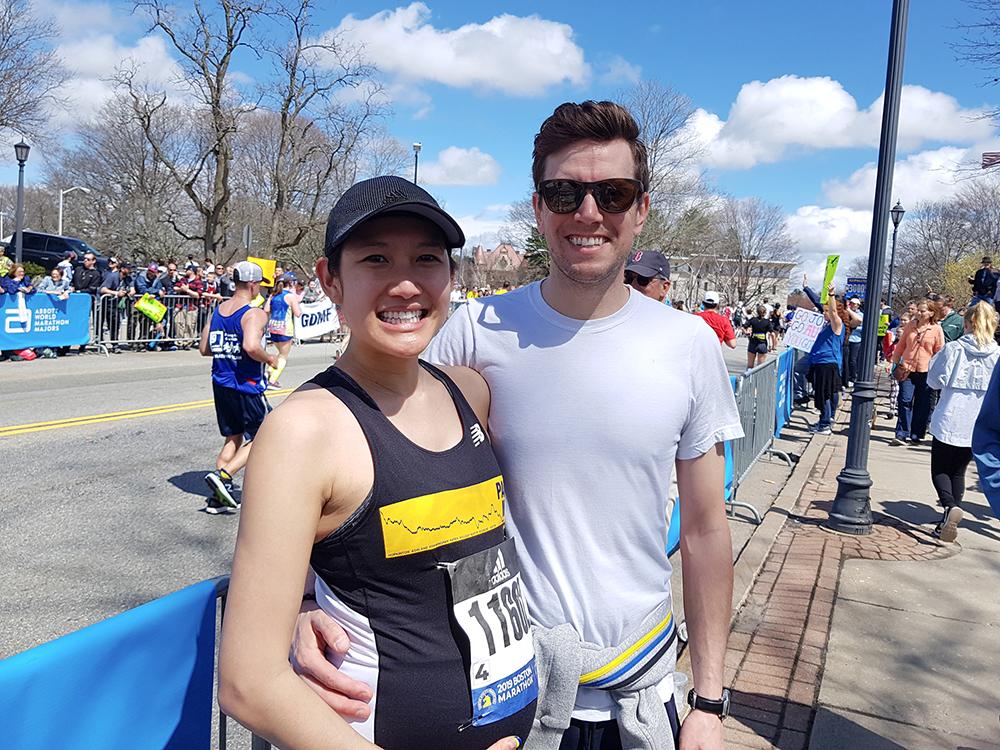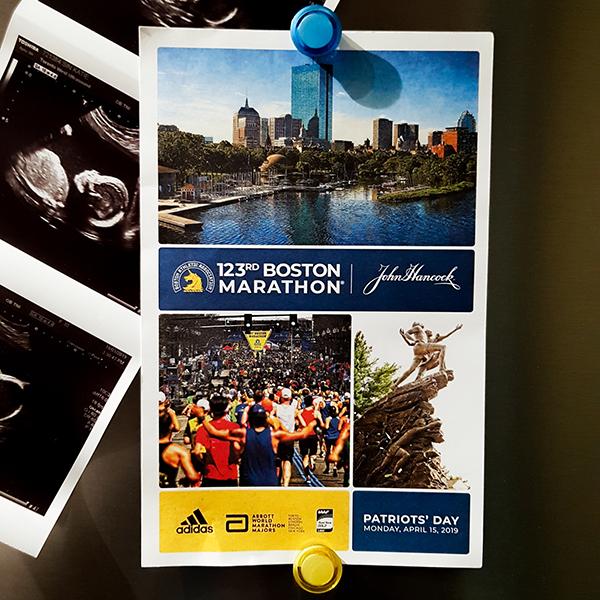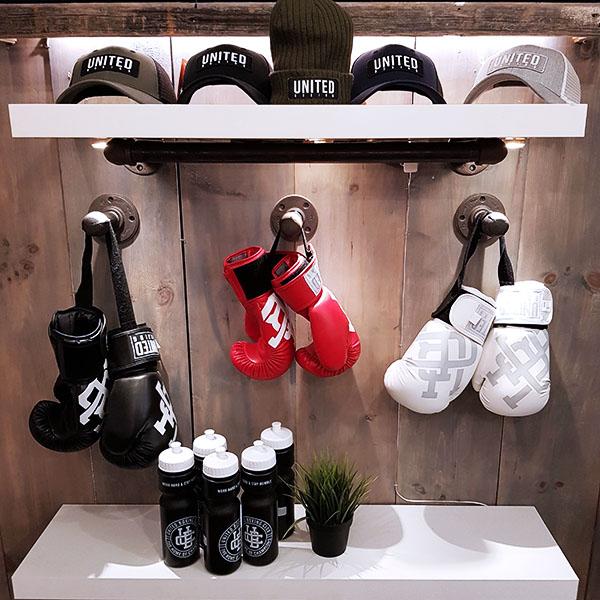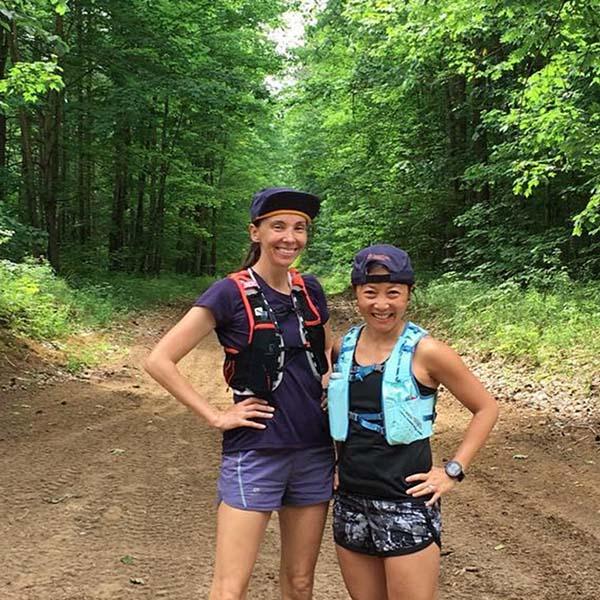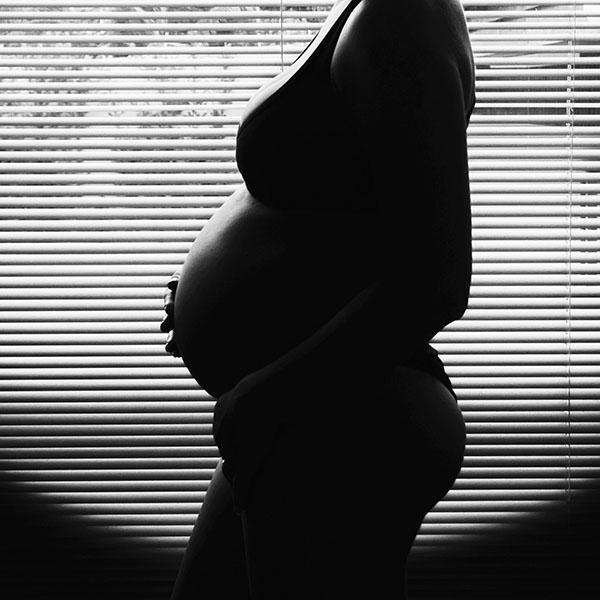My road to the Boston Marathon had a little bump in it—in more ways than one.
When I earned a personal best time at the 2018 Erie Marathon, re-qualifying for the 2019 Boston Marathon, I was elated to return to the oldest, most iconic marathon in the world. Then shortly after I registered, my husband, Nathan, and I learned we were expecting—and come race day, I’d be seven months pregnant.
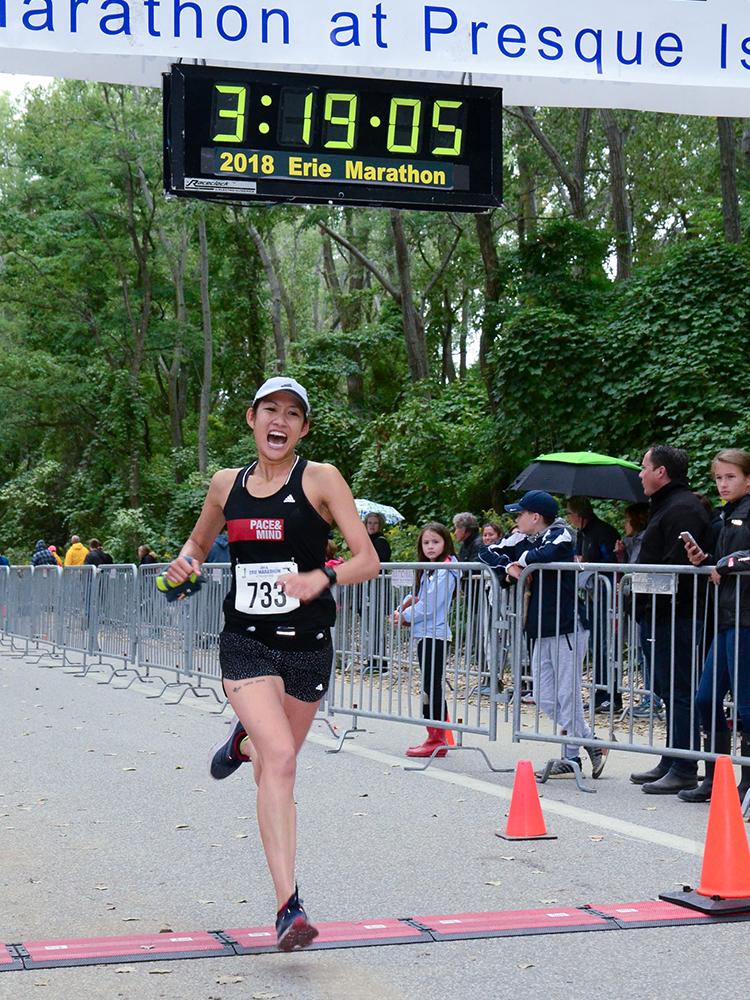
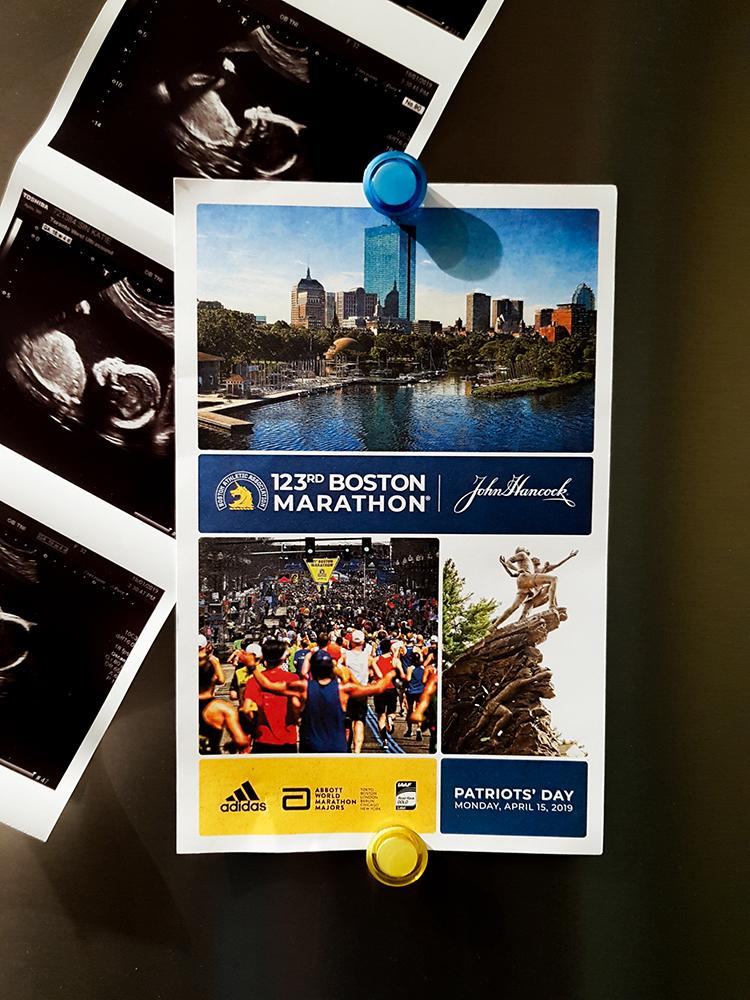
While I knew I’d have to modify my training, I was excited. My friend Tanja had ran hundreds of kilometres while pregnant, and I couldn’t get her words out of my head: Pregnancy shouldn’t sideline a woman for nine months.
As it turned out, getting to the Boston Marathon wasn’t an easy journey. So, with all the lessons I learned first-hand, here’s my (non-professional) guide to training and running while pregnant.
Find a doctor who’ll help manage the risks
This should go without saying, but above all else, listen to your doctor. Every pregnancy is different, with a multitude of possible conditions that could affect you, from the mundane to the nerve-racking. In my case, my first ultrasound came with a scary surprise: The baby was perfectly healthy, but I was shocked to hear I had a sizeable ovarian cyst. Though it was benign, there was still a risk that physical activity could cause it to twist or rupture, leading to intense pain and a trip to the hospital—the last thing I wanted to worry about while racing in another country.
After consulting with a specialist in high-risk pregnancies and doing numerous precautionary ultrasounds, I was cleared to run the Boston Marathon, but on two conditions: I could do only half of it, max, and only at a moderate pace. Which leads me to my next point…
Don’t just lower your expectations—drop them
At the beginning of my pregnancy, I read about numerous inspiring moms who had run marathons while pregnant, and I was psyched to join their ranks. I expected to keep training with my friends, just at a progressively slower pace. So, being told I could run only half of the Boston Marathon was devastating news. I was frustrated that this ovarian cyst, which I may have had for years, was suddenly preventing me from reaching the finish line. But I soon realized my doctor’s advice was the best compromise, allowing me to participate in the iconic race while being careful about my health, and the health of my baby.
My pre-pregnancy training involved running six days per week, but I started cutting down on the mileage once the first trimester nausea hit, and my growing belly began slowing me down. With my cautious new mindset, I put training with my Pace & Mind team on pause, and kept my workouts indoors throughout the treacherous winter, alternating between the treadmill and elliptical, and adding pregnancy-friendly strength exercises.
Get those pregnancy symptoms under control
At first, I assumed being a strong runner meant I wouldn’t have to deal with all the typical pregnancy symptoms. But I got a reality check in my second trimester, when I noticed sneezes were causing me to pee myself a little. I decided to see a pelvic floor physiotherapist, and I can’t recommend it enough. My physio taught me how to do proper Kegels, and after only a week of twice-daily exercises, the sneeze-peeing stopped. She also helped me get more comfortable during my longer runs. As my belly grew more unwieldy approaching race day, she showed me how to use KT Tape to take some pressure off, and made sure I was wearing my Shelle maternity belly band properly so my bump felt nice and snug.
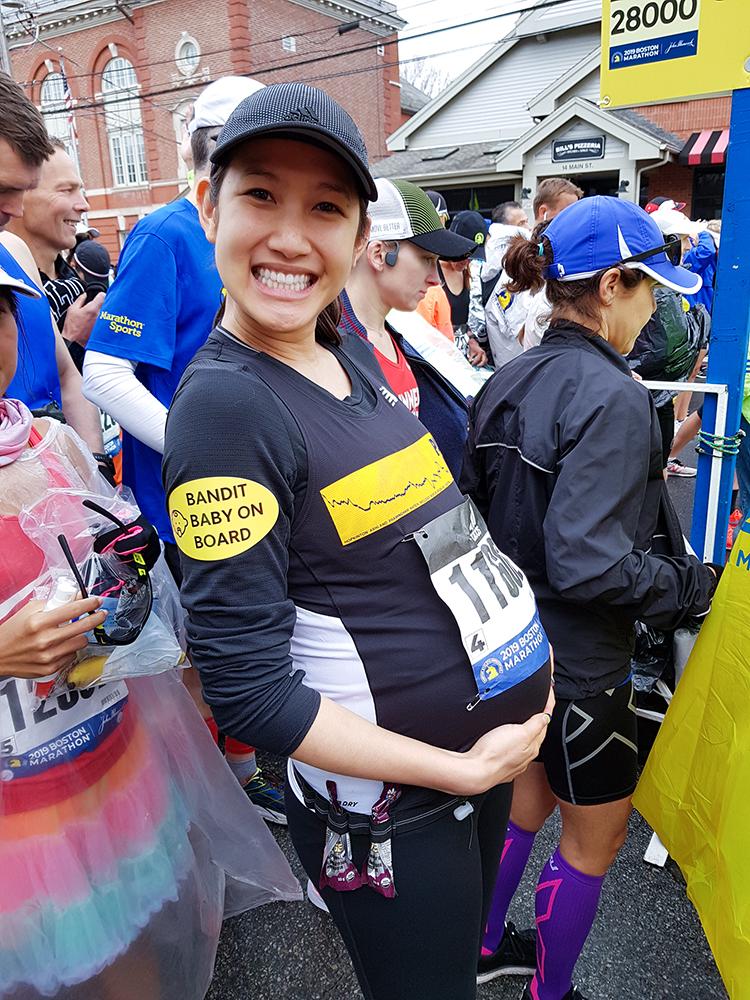
Focus on the fun, not your performance
I can honestly say I really enjoyed training while pregnant. I stopped following a structured regimen, reduced my workouts to three or four days a week, and refused to feel guilty for skipping a workout. I didn’t want to get so obsessed with the active lifestyle aspect of pregnancy that I missed the other fun parts, like spending time with non-running friends and showing off my bump.
On Marathon Monday in Boston, I made sure I arrived at the Athlete’s Village in time to meet up with my Pace & Mind teammates, to cheer them on beforehand and get energized with them. This was the first race where I didn’t feel any pressure to perform, so I listened solely to my body and ran at a pace that felt comfortable and sustainable. I stopped to walk, stretch or snack on cookies and gummies handed out by cheering spectators whenever I felt like it. When I reached my personal finish line at the halfway point, I was greeted by my beaming husband and was flooded with a sense of joy that I had achieved this physical feat at seven months pregnant.
I’m so thankful that I got to train for a marathon with my tiny running buddy in tow, and that ultimately I didn’t face any pregnancy complications. Whatever twists and turns you encounter on your journey to motherhood, I hope my experience gives you some reassurance that this is an amazing thing you’ve set out to do: sharing your passion for running with your baby from the very beginning of their life.
